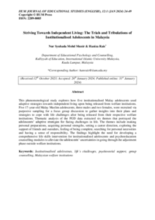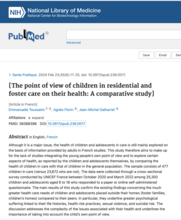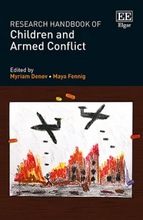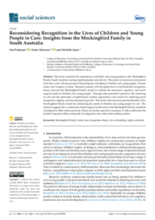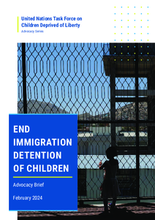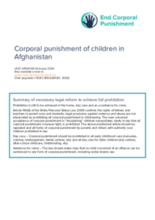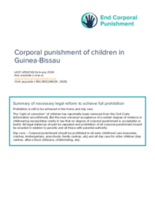Displaying 121 - 130 of 14138
In this conversation moderated by Gillian Huebner, executive director of the Collaborative on Global Children’s Issues at Georgetown University, panelists outline Ukrainian efforts to protect its children and the measures international partners can take to support an effective response to the impact of Russia’s policies of aggression on Ukraine’s future.
In this conversation moderated by Gillian Huebner, executive director of the Collaborative on Global Children’s Issues at Georgetown University, panelists will outline Ukrainian efforts to protect its children and the measures international partners can take to support an effective response to the impact of Russia’s policies of aggression on Ukraine’s future. Ambassador of Ukraine to the United States Oksana Markarova will provide opening remarks. A reception will follow the conclusion of the question-and-answer session.
This phenomenological study explores how five institutionalised Malay adolescents used adaptive strategies towards independent living upon being released from welfare institutions. Five 17-year-old Malay Muslim adolescents, three males and two females, were recruited via purposive sampling for a focus group discussion to gather insights into their plans and strategies to cope with life challenges after being released from their respective welfare institutions.
Although it is a major issue, the health of children and adolescents in care is still mainly explored on the basis of information provided by adults in French studies. This study therefore aims to make up for the lack of studies integrating the young people’s own point of view and to explore certain aspects of health, as reported by the children and adolescents themselves, by comparing the health of children in care with that of children in the general population.
This handbook explores children’s lived realities of armed conflict and its aftermath and features empirical, conceptual and policy analyses alongside first-hand accounts of the experiences of war-affected children and youth.
This study explored the experiences of children and young people in the community-based support model of the Mockingbird Family, in South Australia, during implementation and roll-out. The study involved semi-structured interviews with a diverse group of 54 participants, including 21 children and young people, 12 foster carers, and 14 agency workers.
This advocacy brief provides an overview of promising practices and lessons learned to end child immigration detention in the U.S. and sets out a range of policy actions needed to scale up efforts to end this form of violence.
This is a corporal punishment country report for Afghanistan. In Afghanistan, the Law on Protection of Child Rights 2019 prohibits corporal punishment in alternative care settings and in penal institutions.
This is a corporal punishment country report for Guinea-Bissau. While prohibition of corporal punishment is still to be achieved in the home and day care, the Child Protection Code 2021 of Guinea-Bissau prohibits corporal punishment in alternative care settings, schools and in penal institutions.
Family for Every Child launched its global inter-agency guidance on supporting kinship care aimed at policy makers and programme managers during this webinar on 1 February 2024.

